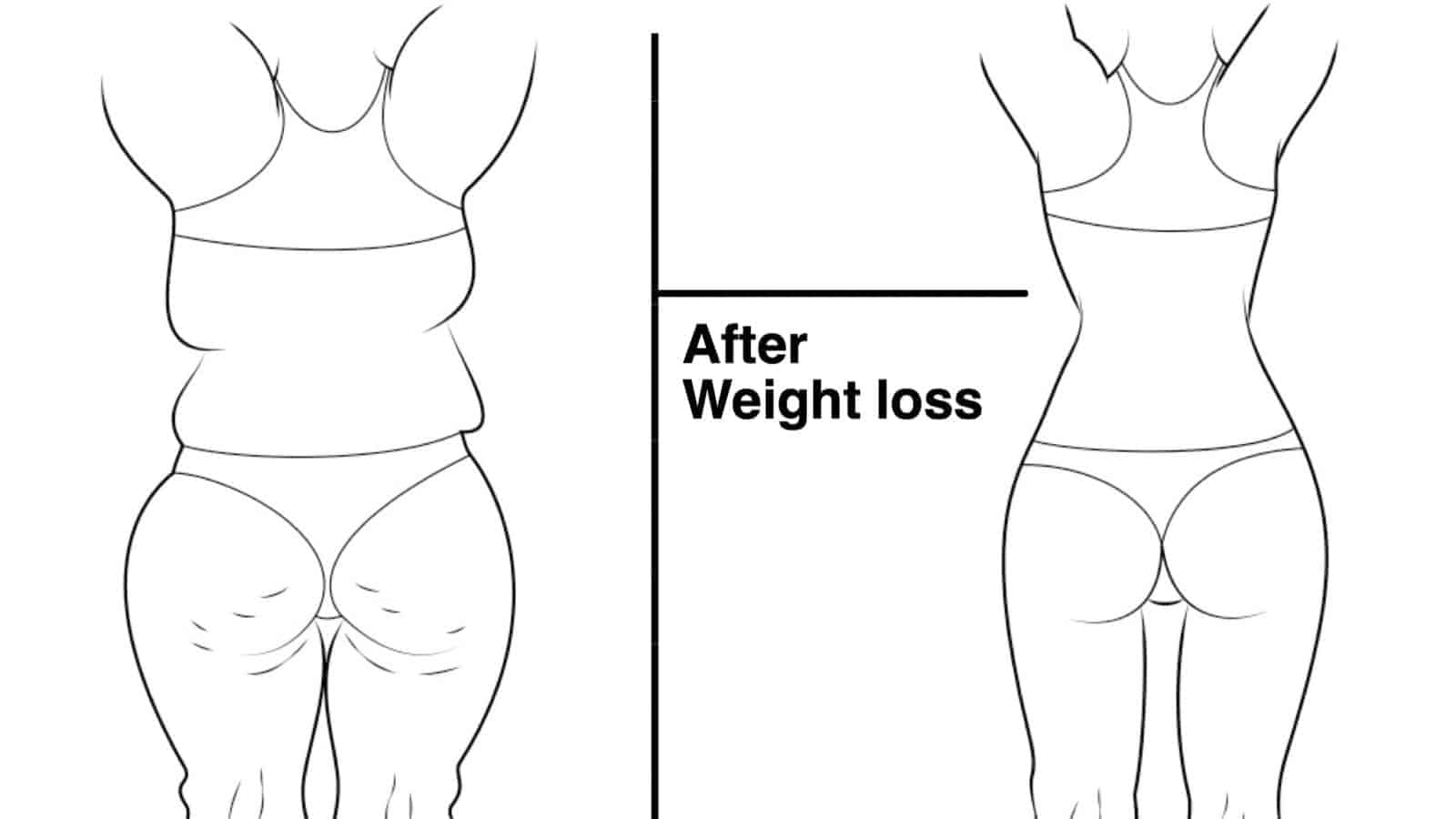Most of us of who are trying to lose weight often find that the toughest part isn’t actually losing the weight in the first place – it’s keeping the weight off! Many people who are trying to diet often lose and gain weight in cycles, having difficulty keeping the weight that they originally lost off.
According to a recent study by a group of scientists, “Combatting overweight or obesity can lead to large fluctuations in an individual’s body weight, often referred to as weight cycling or ‘yo-yo’ dieting. Current evidence regarding the potentially damaging effects of these changes is conflicting.”
Losing weight is a fairly straightforward idea: calories in, versus calories out! You just have to make sure you’re eating good food and keeping your body moving. But what is the trick to not gaining that weight back once it’s all gone? Some of the best ways to lose the weight you’re looking to lose and to not gain it back may actually surprise you.
Here Are 5 Ways To Make Weight Loss Stick
“Successful weight loss takes programming, not willpower.” – Phil McGraw
1. Keep yourself accountable
Doing things that are difficult, like controlling our eating habits and maintaining an exercise routine, are always easier when we can be held accountable for our actions. Teaming up with a friend or family member as your weight-loss buddy can offer both support and accountability.
Your brain “knows the body’s fat cells are decreasing and it wants to get them back, even after you’ve reached your goal weight. Your brain is constantly telling you ‘eat, eat, eat.’ It will also deny that you are regaining weight, even if your clothes are getting tight. You need reliable ways to counteract these messages,” says Ken Fujioka, MD, director of the Center for Weight Management and of nutrition and metabolic research.
If you’re going to report to someone every week or so about your progress, you’re way more likely to keep yourself on track. If you don’t have a friend close by who wants to lose weight, try finding online communities where you can post your updates and keep each other accountable.
2. Keep your body moving
Once you lose the weight, it may feel tempting to just let yourself relax. Maybe you skip a gym day or two, and before you know it you’re not really working out the same way you used to. Keeping up your routine is key to losing weight, as well as keeping the weight off.
“To maintain a weight loss, I recommend people exercise at least 30 minutes a day on most days of the week and do strength training twice a week,” says registered dietitian Jim White, RD.
Research has proven that people who exercise and keep their bodies moving have more success in both losing weight and making sure they don’t gain it back. So, even when you finally reach your goal, make sure to keep your body moving – go for a walk, hit the gym, lift weights! Whatever your preferred method of exercise is, keep it up.
What about food restrictions?
“Activity becomes the driver; food restriction doesn’t do it. The idea that for the rest of your life you’re going to be hungry all the time—that’s just silly,” says James Hill, psychologist and authority on weight loss.
3. Eat regular meals
The downfall of both losing weight and gaining it back comes from those mid-afternoon and late-evening munchies. Skipping breakfast can seem like a good idea at the time when you’re trying to cut down on your calorie intake, but research has shown that you don’t want to go about skipping breakfast.
“Eating regularly throughout the day keeps your metabolism running at full speed, prevents dips in your energy, keeps you alert and focused, and [can help keep] your weight steady by preventing overeating at later meals,” says Brigitte Zeitlin, M.P.H., R.D., C.D.N.
Regular, healthy meals will keep you from overeating later in the day when you’re hungry from skipping meals. Smaller meals four or five times throughout the day may even be better than three big meals. Meal planning can help keep you on top of eating regularly throughout the day.
4. Don’t give up
If the weight comes back after losing it, it’s important not to get discouraged! Everyone who loses weight deals with a little fluctuation, either due to life circumstances, stress, or any other number of factors that can make exercising and eating good difficult. But that’s okay! The only thing you need to do when this happens is to take a deep breath and keep moving on. Motivate yourself.
“We all need to constantly challenge ourselves to stay motivated. Give yourself a goal like a special date, a party, or other social event to help you maintain your weight loss,” adds White.
If you haven’t been to the gym in a week, don’t be too hard on yourself; instead, challenge and motivate yourself! Find some time to go and get started again, even if it’s only for an hour. Don’t blame yourself for eating a quick, unhealthy meal at the end of the day – just find time to go shopping for some healthy ingredients for the next week.
5. Monitor your habits
This means exercising, eating and weight. Make sure to weigh yourself regularly, and monitor what is going on in your life when or if healthy habits start to slip. You’ll start to find patterns in your life that can help alert you to when you need to be more cautious and vigilant about keeping yourself on track with your eating and exercise.
A busy week at work might mean you eat out more because you’re too tired to cook, which can cause the weight to come back. Once you know this pattern, you’ll be able to prepare yourself by hitting the gym more or preparing healthy meals beforehand.
Final thoughts
Many people experience gaining back some of the weight they lost after a few months of hitting their goals. If you’re one of those people, don’t feel bad! It happens to everyone, and it’s pretty common.
“The healthy habits you learned while dieting shouldn’t disappear once you’ve lost the weight. You can eat a little bit more, of course, but don’t stop living that active, healthy lifestyle,” concludes White.
Now you’ll be better prepared to help yourself keep that weight off so that you can enjoy every second of reaching your weight-loss goal.


















